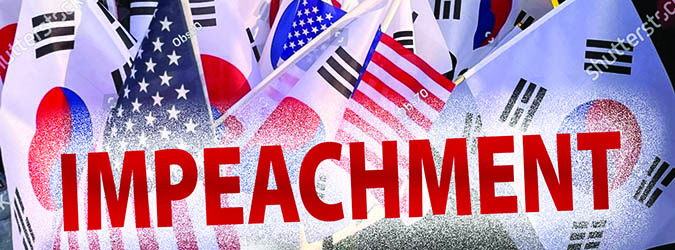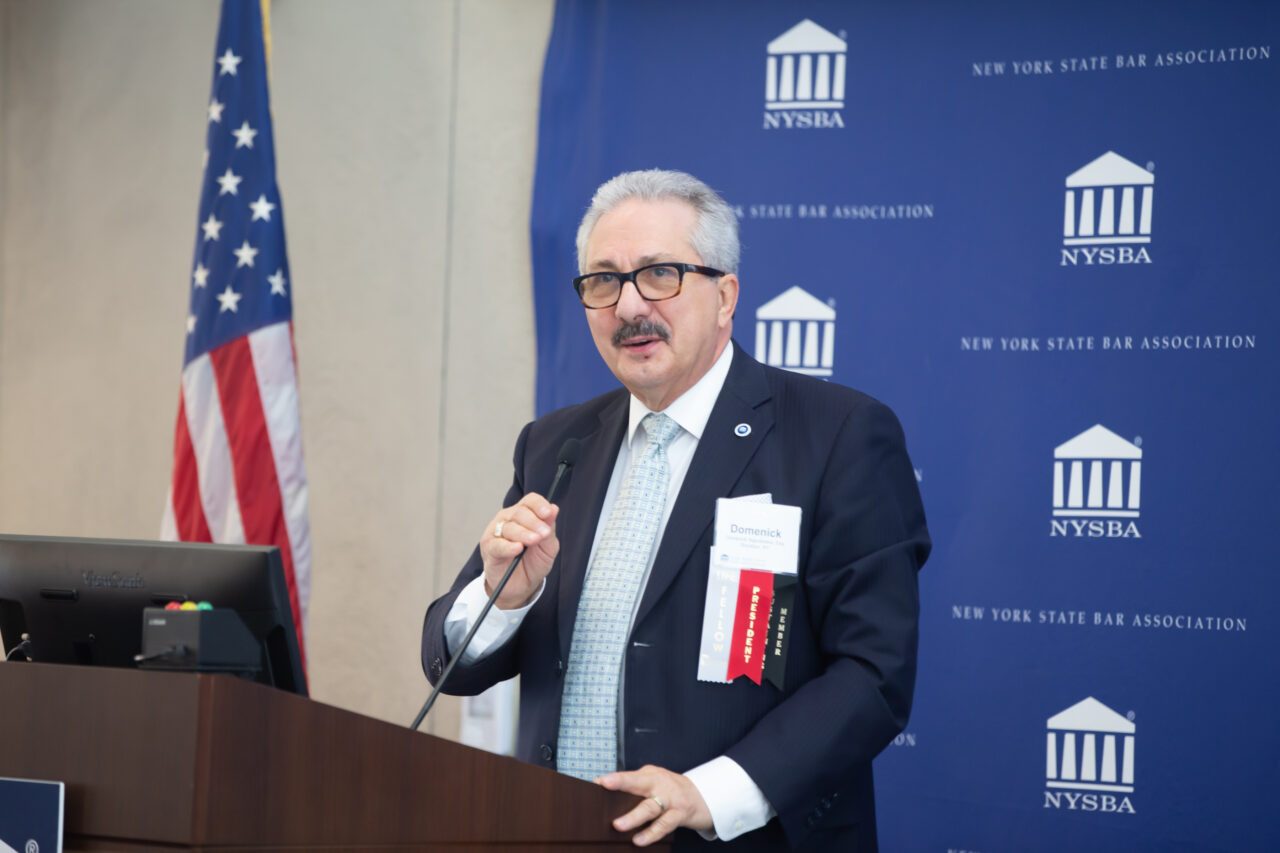Trump v. United States: The Chilling Effects of Potential Presidential Immunity
9.6.2024
 If the President does it, it’s not illegal.”
If the President does it, it’s not illegal.”
Richard M. Nixon, 1977
The view of maximalist executive power has rarely been expressed as bluntly as Richard Nixon did in his interview with British journalist David Frost in 1977, two years after he resigned from office in disgrace. But the United States Supreme Court, in its recent decision Trump v. United States, comes close. The court held that the president has absolute immunity for core presidential action, and presumptive immunity for a wide swath of conduct that might be official, unless the prosecution can establish that a conviction would pose “no danger” of intrusion into the authority of the executive branch. Even more striking, the court held that, in determining whether an act was “official” or not, a court could not inquire into a president’s motives.
The case raises serious concerns about a president’s ability to use the Department of Justice to pursue political enemies. For members of the press especially, the prospect of a weaponized DOJ is alarming. And although potential criminal penalties against a former president are not the only remedies available to targets of politically motivated prosecutions, the removal of a significant potential deterrent to a president who is tempted to abuse his or her power is hardly reassuring.
The Trump v. U.S. case arose out of Special Counsel Jack Smith’s indictment of former President Donald Trump on four counts for conduct that occurred during his presidency following the November 2020 election. The indictment alleged that after losing the election, Trump conspired to overturn it by spreading knowingly false claims of election fraud. The charges included conspiracy to defraud the United States, conspiracy to obstruct an official proceeding, obstruction of an official proceeding and conspiracy against rights (specifically, the right to vote and to have one’s vote counted).
In its holding, the court stated that when a president acts within his “conclusive and preclusive” authority (that is, his powers clearly articulated by the Constitution), his immunity is absolute and neither the courts nor Congress can examine the president’s actions. Beyond that core authority, the president is entitled to “presumptive immunity” from criminal prosecution for acts within the “outer perimeter of his official responsibility.” The Supreme Court acknowledged, however, that no court has yet distinguished official from unofficial actions. Therefore, although the court sets forth three categories of conduct – core official conduct (absolute immunity), “outer perimeter” conduct (presumptive immunity) and unofficial conduct (no immunity) – the court was unable to state with clarity where the lines between any of the categories lie.
The court did make clear, however, that in determining whether a president acted within his or her official conduct, courts could not examine a president’s motives. Because some of the underlying allegations in the case refer to Trump’s discussions with the acting attorney general and other Justice Department officials, in which he urged them to investigate supposed election fraud, the court goes on to say that a president’s discussions with the attorney general and any decisions about investigating and prosecuting crimes fall within the zone of a president’s absolute immunity from prosecution. That is, even if it were clear that the president’s motives in compelling the Department of Justice to prosecute certain crimes were fraudulent and baseless, there could be no criminal liability. “Once it is determined that the president acted within the scope of his exclusive authority, his discretion in exercising such authority cannot be subject to further examination.” (On Aug. 27, 2024, Special Counsel Jack Smith filed a superseding indictment, removing allegations about Trump’s use of the Justice Department, in an attempt to “respect and implement” the Supreme Court’s ruling, according to the DOJ.)
These statements in the opinion about the president’s relationship with the Department of Justice, and the prohibition against looking into a president’s motives for official conduct, raise extremely troubling questions for the First Amendment. Many presidents have a hostile relationship with the press (at least on occasion). But under this holding, any decision to prosecute members of the press (for refusing to reveal sources, say, or for publication of leaked confidential government documents), even if motivated solely by the president’s antipathy toward a particular journalist or outlet, is within their unassailable authority.
To be clear, any journalist or outlet so prosecuted would still have the full protections of the First Amendment to defend the charges. But as all lawyers know, criminal prosecutions are not trifling matters. Of course, journalists have been sanctioned for refusing to reveal sources in the past. Judith Miller, then of the New York Times, was imprisoned for 85 days for civil contempt, for refusing to reveal the government source who leaked the identity of C.I.A. Agent Valerie Plame. The Trump decision would not change the calculus for journalists who refuse to disclose sources in the face of a legitimate judicial order.
But the recent guilty plea of Julian Assange for violation of the Espionage Act heightens the risk for journalists reporting on national security matters. While it is certainly open to debate whether Assange is a legitimate journalist, the conduct of obtaining and publishing leaked government documents, even ones related to national security, is seen by many journalists as an important function in holding government to account (see, e.g., the Pentagon Papers).
Up until now, the Justice Department has not used the Espionage Act to prosecute journalists for publishing classified documents leaked to them. But that possibility is now more concrete. If a president can use the Justice Department to prosecute political enemies or members of the press for technical violations of law (or even, as in the underlying facts of Trump v. U.S., wholly imaginary violations of law) without fear of criminal penalties, the press is newly, and gravely, vulnerable.
As Justice Sonya Sotomayor notes in her dissent in Trump v. U.S., the immunity now granted to the president is a “one-way ratchet.” If a president is immune from any criminal prosecution for abuse of the Justice Department, other restraints on presidential conduct would seem to fall away. Although defenders of the decision may note that impeachment and removal from office is still an available constitutional remedy to restrain a president who acts unlawfully, impeachment is clearly a political process with all of its attendant flaws. Do we trust that Congress will overcome the political polarization of recent years to act decisively at a critical moment?
In response to the decision, President Joseph Biden has called for a constitutional amendment that makes clear no president is above the law or immune from prosecution for crimes committed while in office, what he calls the No One Is Above the Law Amendment. But passage of a constitutional amendment (two-thirds of both the House and Senate approving the proposal, then ratification by three-quarters of the state legislatures) seems even less likely than a new spirit of bipartisanship sweeping Washington, D.C.
By contrast, consider the ground rules for employers who want to dismiss a worker without cause. Lawyers who practice employment law are familiar with the concept of “employment at will,” the idea that an employer can terminate an employee for any reason or no reason. The critical restraint on that ability, however, is that the employer cannot terminate an employee for an unlawfully discriminatory reason – that is, based on race, gender, age or other protected categories. Courts are fully capable of examining the motives behind otherwise lawful conduct and determining whether those motives make the conduct illegal. More important, those rules provide a reasonable restraint on employers. A properly functioning human resources department will ensure the decision to terminate an employee is nondiscriminatory before acting.
Is it an intolerable intrusion into the president’s authority for a court (a co-equal branch of government, by the way) to ask whether a president’s motive in a prosecuting a journalist or other political enemy is legitimate? This Supreme Court believes it is and that giving courts the power to do so will set off a parade of horribles – successive administrations prosecuting the prior president chief among them. Clearly, that is a real risk worth worrying about. But it may be that the danger of a president unrestrained by criminal law in the execution of his duties is even greater.
Fabio Bertoni is general counsel at The New Yorker.






